It was a television show that inspired a former pilot of the Indian Air Force, Shashishekhar Pathak to launch ‘Bamboochi’, a firm that makes cycles from bamboo. The TV show was a tutorial on how to make cycles from bamboo.
It was around the time when Pathak was finding ways to make value-added products from bamboo grown on his farm in Bhor village, 60 kilometres from Pune, Maharashtra, that he stumbled across his innovation.
He spent the next two years building a prototype and got an overwhelming response from whoever saw the cycle, offline and on his social media handles. In 2016, Pathak along with his wife, Devika, officially launched the company to offer handmade, foldable and customised cycles from bamboo. By doing so, he also encouraged villagers to try their hand at bamboo products.
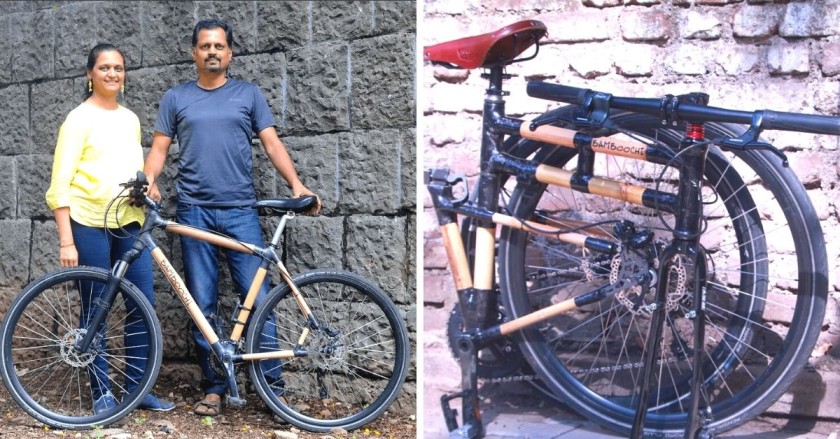
“We neither had engineering degrees nor any prior experience of product manufacturing. It took us multiple failures, time and effort to crack the code. Our engineering friends and the internet did come in handy,” he says, adding, “Bamboo is only one part of the vehicle but ensuring other parts, like gears, brakes, sheets and tires, fit properly while accommodating bamboo was a challenge.”
While Pathak was initially creating the cycle for his use, his friend had expressed interest in the same, and that’s how their venture took off.
Today, Bamboochi makes several cycle variants as per the customer’s usage — from a professional cycle, an eco-conscious one to one that can be maneuvered in hilly terrain. Given that Pathak and Devika carefully craft the customised cycles from high-quality bamboo and other cycle parts, the pricing starts from Rs 1,05,000.
Features of the Bamboo Cycle
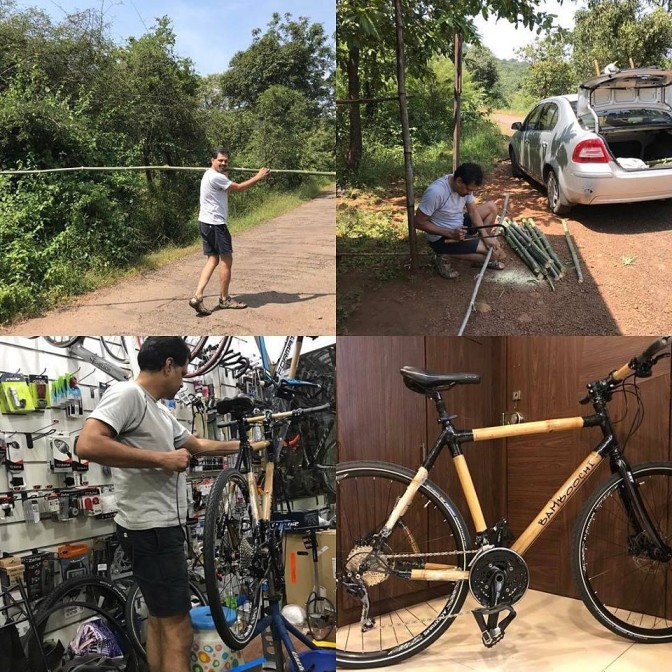
Pathak and Devika wanted components such as gears and seats that could be customised as per the rider’s needs and body structure. This is one of the reasons why the venture has made only 25 frames. However, each frame is unique.
“We take the height and length of the rider’s hands and feet along with the details of the terrain they would like to cycle. A customer has to place an order two months in advance considering our detailing and quality. We purchase tires and brake systems from premium manufacturers,” he adds.
Pathak has made several variants which include lightspeed, electric bike and tandem. For each cycle, the freshly harvested bamboo is kept for drying for weeks. Unlike bamboo used for decorations and garden stakes, Pathak’s bamboo variant is sturdy and scratch resistant.
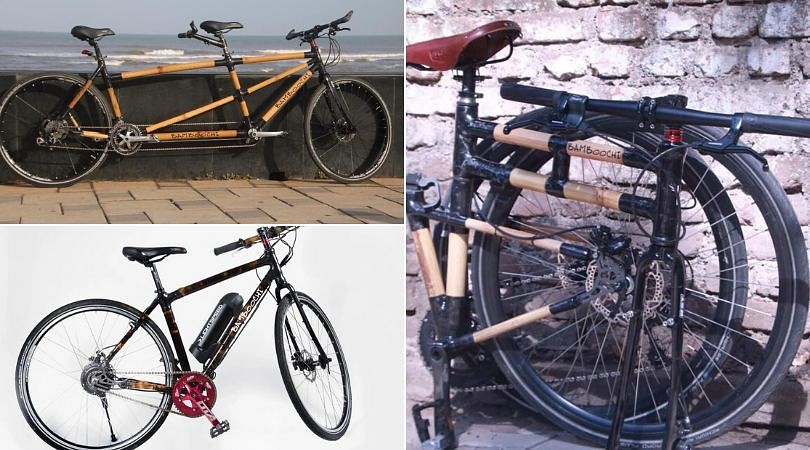
“The bamboo is specifically selected, heat-treated and joined using extremely strong natural fibres or synthetic material combined with an epoxy resin. The frame is a sealed system using a combination of polyurethanes and varnishes that are designed to withstand extremely harsh environments. The efficiency and acceleration achieved in a bamboo cycle is similar to the one that carbon fibre gives. We offer a three-year warranty on the frame against any manufacturing defects like bamboo cracking or splitting and any joint defect,” he says.
Each variant has specifications. For example, the handmade bamboo cycle is rain resistant and can be suitable for city roads. Meanwhile, the e-cycle runs on a portable Lithium-Ion battery. It has an electric pedal assist kit and an over 70 km electric range. The company also made a DIY cycle kit in the lockdown.
Seeing Pathak’s commitment to treat each of his cycles as a masterpiece, a professional cyclist from France, Patrick LeFerre, visited Bhor to learn the manufacturing process from him in 2018.

“I admire Pathak’s work a lot because he always tries something new and that shows his creativity. I was very impressed with Pathak’s precision for bamboo cycles. He taught me everything and even helped me with a plan to commercialise it in France. Today, I make bamboo cycles in my country under the brand name ‘Cyclobam’. People have appreciated it and whenever I am out on my cycle, strangers stop me to enquire about it,” says LeFerre.
Future of Bamboo
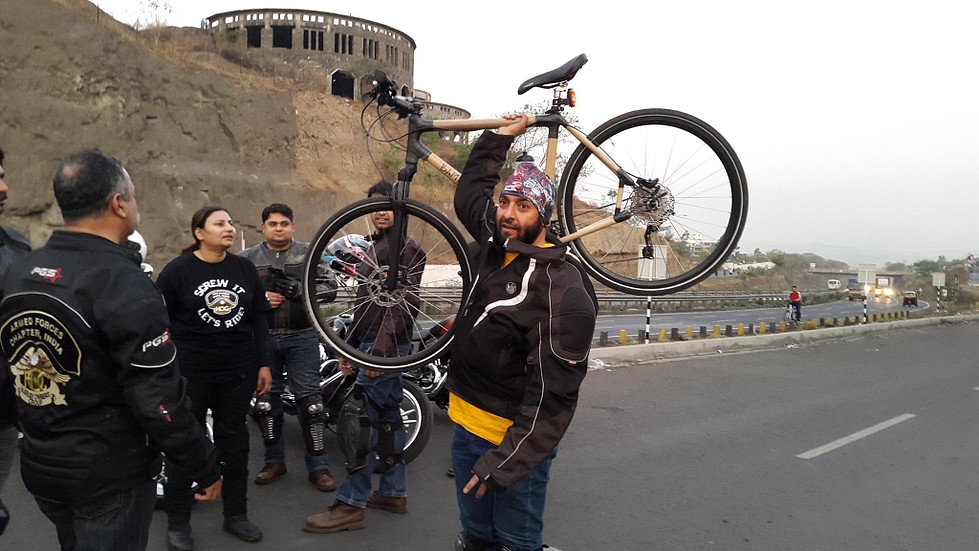
Though, Pathak believes the price of his cycle will reduce only once it is mass manufactured.
“Bhor region is known for the cultivation of rice, ragi and bamboo. Farming keeps them occupied for half a year and the remaining half is spent hunting for livelihoods, often in the city. Meanwhile, the bamboos don’t fetch a fair price as farmers do not have the right means to market their produce. Even if people do not want to make a cycle they can make several value-added bamboo products for everyday use which will generate livelihood. I have always encouraged the locals to acquire new skills and even taught some of them. Sachin Khule, a local, makes bamboo cup holders, kitchen towel holders, banana stands, chairs and more for which he fetches a good price. I hope Sachin’s case inspires other villagers one day,’ says Pathak.
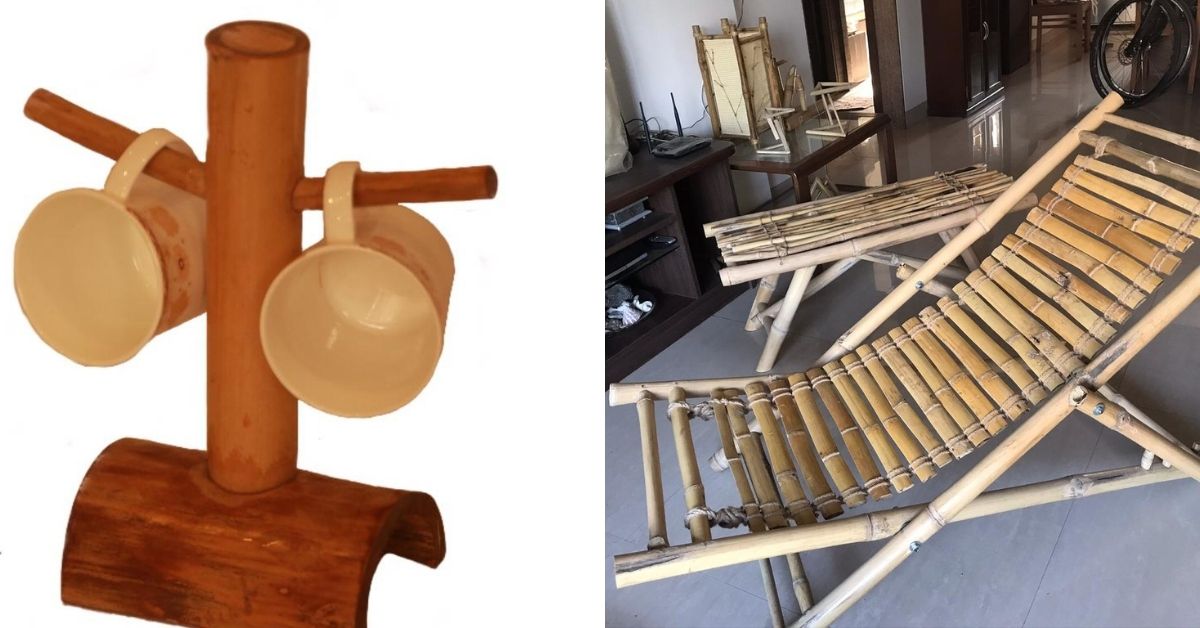
If you want to encourage villagers like Sachin, you can purchase their hand-crafted products and bamboo cycles by calling — 9870555092.
Edited by Yoshita Rao
No comments:
Post a Comment